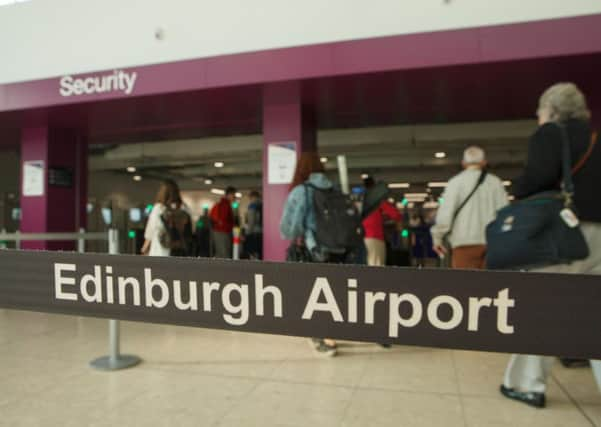Jane Bradley: ‘Willies’ face tax problem


A couple of them work in the financial industry, you see.
Get your mind out of the gutter. These particular Willies are the acronym for the “Work In London, Live In Edinburgh” crowd. See? Willies. It’s thought there are up to 100,000 of them.
After the 2008 financial crash, jobs in high finance were hard to come by on both sides of the Border. However, London recovered faster and more easily than Scotland, which was reeling from the government bailouts of its two major banks.
Advertisement
Hide AdAdvertisement
Hide AdHence many people based up here - often with a house, husbands or wives and kids - took jobs which require them to spend the vast proportion of the week in the UK capital.
The salaries are good, the promotions are plentiful. And up until now, this dual lifestyle has not been a problem - except for the poor Willies themselves, who spend far more time at Edinburgh and Gatwick Airports than seems fun to me.
But with the possibility of income tax rises this side of the Border next year, many of them may soon decide they need to stake their claim as Englishmen and women. And quickly.
Under the Scotland Bill, the Scottish Government will get new powers to set income tax rates from next April, but for now Holyrood will only be allowed to raise or cut rates by the same amount in each band. That prevents the Scottish Government from cutting only lower income tax rates, altering bands or raising higher rates.
But finance secretary John Swinney has already hinted he could look at raising income tax next year once the new powers come into effect, making it potentially cheaper to work in England than north of the Border. Most of us will not have the choice, paying our taxes to companies based in Scotland.
But many Willies work for perhaps four days a week in London, some with a fifth day or so from “home” in Scotland. Many are being paid by an English company - or perhaps the UK headquarters of an international company. An HMRC consultation earlier this year concluded residency would be the solution. If you have a home on one or other side of the Border, that is where you reside. However, many Willies have two homes. They might have a family home in Scotland and a rented flat in London. In this situation, HMRC says, proof is needed of where they spend the majority of their time.
Some, it is believed, could go to extraordinary lengths to prove their London residency. The decision could be based, says Stephanie Niven of financial services firm Grant Thornton - which is holding a seminar on the conundrum next week - on things such as where they do their weekly shop or visit the doctor. If Waitrose Morningside pops up on their credit card bills on far more occasions than the Tesco Metro in London’s Cheapside, then they could be in trouble. What’s the solution? Paying for a check-in case to ship their groceries north of the Border?
A proportion will have families here, which makes life tricky. If your child is at school in Scotland, you pay your mortgage in Scotland and your wife’s job is in an office on Princes Street, it would surely be difficult to claim that you are working full time in England. But, of course, you well could be.
Advertisement
Hide AdAdvertisement
Hide AdI remember having a similar problem (in reverse) years ago when my husband and I bought our first flat together. At the time the transaction took place, he was finishing a job in London, due to move to Scotland a few weeks later. As the mortgage was mainly based on his salary, the lender wasn’t keen that my husband’s address was technically still in England. They kept quizzing us if we were sure that we weren’t purchasing it as a buy to let - or perhaps renting out his share of the space?
It was only when my husband pointed out that it was a small, one-bed flat and practically drew the mortgage man a picture to demonstrate the only sleeping space we could possibly rent out - his side of the bed - that they backed down.
While you can’t feel too sorry for them and their cross-Border lifestyles, it sounds like a typically complicated conundrum only the HMRC could have concocted.
Tax doesn’t have to be taxing? Just ask the Willies.